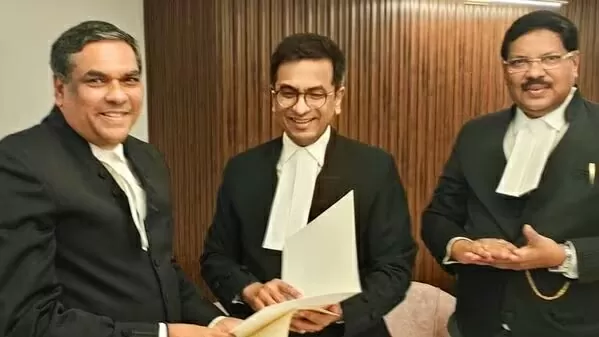
President Draupadi Murmu on Thursday appointed Justice Sanjiv Khanna, the senior-most Supreme Court judge, as the next Chief Justice of India (CJI). Justice Khanna will replace current CJI DY Chandrachud, who retires on November 10, 2024, at the age of 65. Justice Sanjiv Khanna will assume charge on November 11, 2024.
This appointment was recommended by current CJI DY Chandrachud, who himself was appointed to the post on November 8, 2022. Giving information in this regard, Union Law and Justice Minister Arjun Ram Meghwal said, 'In exercise of the powers conferred by the Constitution and after consultation with the Honorable Chief Justice, the Honorable President has appointed Supreme Court judge Justice Sanjeev Khanna for non-custody with effect from November 11, 2024. Has been appointed Chief Justice of India.
Justice Sanjiv Khanna will take charge as the 51st Chief Justice of India. His tenure will be for about seven months, which will last till May 13, 2025.
Who is Justice Sanjeev Khanna?
Justice Khanna was appointed to the Supreme Court on 18 January 2019 from the Delhi High Court. During his tenure he heard several politically sensitive cases, including the bail pleas of Aam Aadmi Party (AAP) leaders Arvind Kejriwal, Manish Sisodia and Sanjay Singh in the Delhi Liquor Policy case.
In May, a bench headed by Justice Khanna had granted interim bail to former Delhi Chief Minister Arvind Kejriwal so that he could participate in the Lok Sabha election campaign. This decision was considered unique in itself.
Subsequently, in July, this bench again granted interim bail to Kejriwal and referred the case to a larger bench to examine the need for additional arrest grounds under the Prevention of Money Laundering Act (PMLA) and to prevent misuse of the law.
A bench headed by Justice Khanna also heard cases related to Electronic Voting Machines (EVMs) and Voter Verified Paper Audit Trails (VVPATs). Although the bench rejected the demand for 100 per cent VVPAT verification, it asked the Election Commission to implement additional security measures. Apart from this, Justice Khanna contributed to many important decisions taken by the Constitution Bench, among which the decisions related to Article 370 and the Electoral Bond case are prominent.
 look news india
look news india